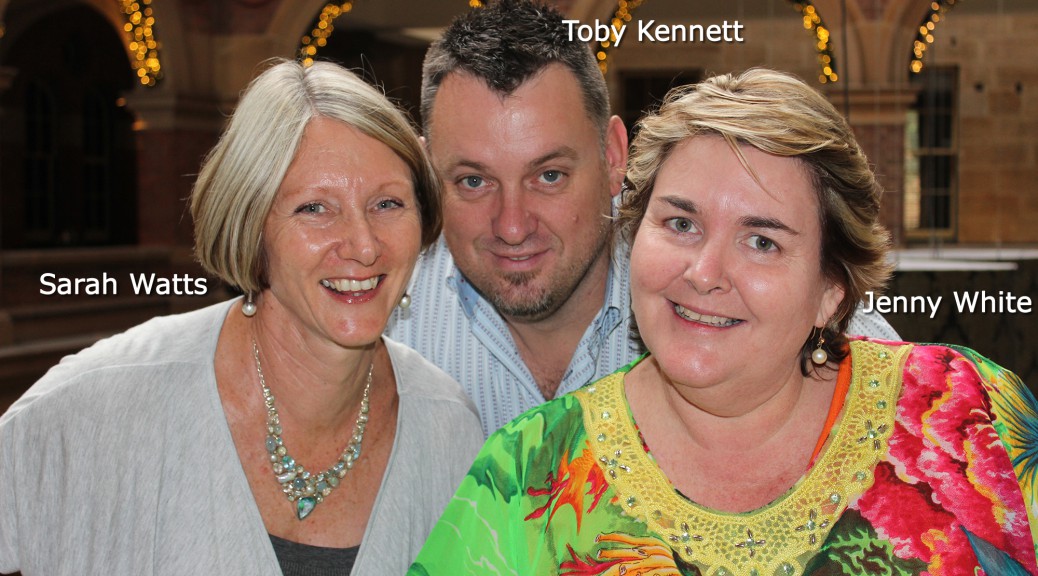Recruiting is a funny business!
Whether being done for a small family business, a large multinational or as a Recruitment Consultant – the “recruitment process” provides an insight in to the human psyche. And let me just tell you, it’s not always a pretty sight!
As a “glass half-full” kind-a-guy, I’d prefer not to err on the negative, unless there is something to be gained from this insight and so in this blog I thought that there would be significant value in sharing a couple of stories, thoughts and observations about what “we” see as recruiters in a niche market.
First and foremost, let me state from the outset that for the vast majority of roles that are recruited, there is only ever going to be the ONE position available. Obvious right? Stick with me here, because whilst this should be obvious, it would seem that there are candidates out there that forget this fact and the other closely associated fact that if there is only ONE position available and say 100 people apply, chances are that NINETY NINE of them are going to be disappointed. It’s basic maths and yet it doesn’t stop candidates from being rude and at times, even abusive about the fact that they didn’t get the job even though (in their not-so-humble opinion), they were the best person for the job.
This leads me on to my next comment: how can you know if you are the ‘best person for the job’ when you don’t even know who else has applied OR what the employer is actually looking for? You’re well within your rights to believe that you’re a strong candidate because you have the necessary skills, experience and traits BUT the point is that – YOU will NEVER know EXACTLY what an employer is looking for. So rather than “assume” that you’re the best person for the role, invest the time in your application to make sure that you have the best possible opportunity of getting the chance for a face-to-face interview. Then, blow them out of the water at that interview and you might just convince them that you’re what they are looking for !
I mentioned above the competition (other candidates) and this is another point that unsuccessful candidates so often miss. Faith and confidence in yourself is a much needed trait to be successful in the job market, but a misguided belief that your “Sh#t don’t stink” is likely to leave an impression of arrogance and prima donna tendencies. Neither of which are an attractive proposition for a potential employer. Remember, you may well be a great candidate, but there is always someone out there that is “better” than you. Not a better person or even a better employee, but possibly just a better FIT. Whilst I’m on the subject of “fit”, just quickly – always remember that a good fit goes both ways. It has to be right for the employer AND the employee, so sometimes you’re better off missing out on a job if the fit isn’t right – it might just be a blessing in disguise! To put the concept of competition in perspective, I recently recruited for a senior business leader role that attracted almost 70 applications. Of the 70, there were 25 that could have done the job (admittedly to varying degrees, but they could still have “done” the job). That’s over ONE THIRD of the candidates that applied, that by rights, could/should have been in consideration for the role!
This is where process comes in to play. As a Recruitment Consultant, I am adamant about the fact that it is not my job to decide WHO a business chooses to employ. Ultimately, my client is the one that will have to work with the successful candidate and not me, so later decisions are completely up to the employer (or their nominated representative(s)). My (our) job is to make sure that we work closely with the employer (our client) and have open lines of communication (for more info on the importance of the employer-recruiter relationship see previous blog: http://blog.whitenow.com.au/2015/05/01/how-to-recruit-a-recruiter/) so that we are able to clearly identify all aspects of the ideal candidate-type in the hope that we can present our client with a range of candidates for consideration that match their requirements as closely as possible. Obviously a lot of this is dependent on their ability to articulate what it is that they are looking for and our skills at drawing out this information and sometimes the tough conversations need to be had so that there aren’t any “elephants in the room”. To achieve this, we run a tried and tested methodology that is linked to years of experience and because it is not an exact science, we then sprinkle all this with the tiniest pinch of fairy dust in the hope that it will bring us that magical candidate that fits in to our client’s organisation like a hand in to an old glove. Coming back to my point specifically in relation to the role where 70 applied and 25 could do the job – as one of those 70 candidates, “YOU” would have NO IDEA what the level of competition is like both from a ‘cold-hard-facts’ perspective (the other candidates’ credentials) nor the ‘intangibles’ perspective (the competition’s alignment to the spoken [and sometimes unspoken] criteria as set out by the employer). Surely then it is overly presumptuous to expect that you will automatically be on the short list and probably the preferred candidate for the role.
So, now that we are all a little more aware of some of the obvious, but often unconsidered facts of recruitment, why did I title this blog “It’s How We Lose That Shows Who We Are!”? Simple: the candidates that stick in my mind for all of the right reasons are those that are humble in defeat. Those that thank me for my time and effort and make comment of their understanding of how tough the market it is and how difficult the decision must have been. Then there are those that remain in my mind for all of the wrong reasons and rather than list some of the negative comments, behaviours and language here, I will simply say that their responses perhaps show their true colours when they’ve been knocked down.
Why?
Well because in business, particularly at a senior management level, it is unlikely that things are always going to be rosie! There are going to be challenges and adversity and so if it comes to my integrity versus the integrity of someone that cannot be gracious in defeat and I am asked “can you recommend this person”, I am left with the easy decision to tell my client “No. No I can’t recommend this person because I don’t believe that they would be good for your business or your culture”.
“ANYONE CAN BE A GRACIOUS WINNER BUT BEING GRACIOUS AFTER LOSING SHOWS STRENGTH OF CHARACTER” – Donald Lynn Frost


